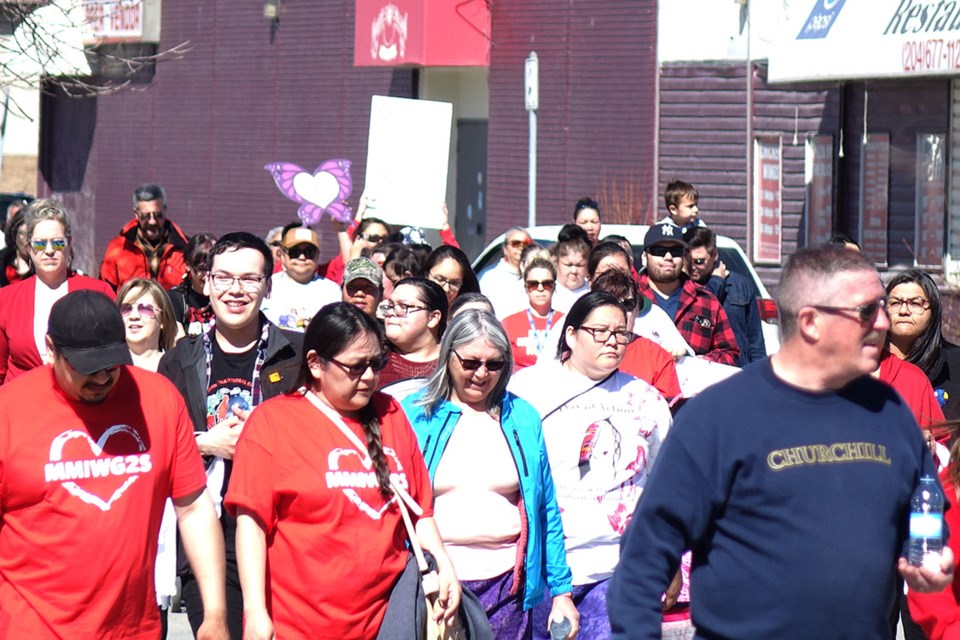Thompson residents marched through downtown on the afternoon of May 5, the National Day of Awareness for Missing and Murdered Indigenous Women and Girls and Two-Spirit People, also known as Red Dress Day.
Starting and finishing at Manitoba Keewatinowi Okimakanak’s office on Selkirk Avenue, the march proceeded down Mystery Lake Road, along Thompson Drive and up Public Road, with speeches, a barbecue and entertainment in the MKO parking lot on an unseasonably warm and sunny early May afternoon.
“I think about our young people,” said Heidi Spence, director of MKO’s MMIWG2S liaison unit. “We want them to grow up in a community that’s safe. We don’t want young girls to have to worry about what’s going to happen to them. We can’t let it be a normal occurrence.”
Some of those who walked wore shirts or carried signs with the names of missing and murdered people, including one adorned with the name of Leah Anderson, who was killed in Gods Lake Narrows in 2013 at the age of 15.
Ace Doran-Campbell said after the walk that she participated in memory of Anderson.
“This was someone my mom had grown up babysitting and was family to us,” said Doran-Campbell. “To this day, there still haven’t been any arrests in her case.”
The inclusion of two-spirit people in Red Dress Day made Francis Budd get emotional during a speech to the crowd,
“It is so so important that two-spirit and gender-diverse people are included when we talk about disproportionate violence,” Budd said. “The most fundamental thing that we must remember is the way that we regard one another as human beings can sometimes be a matter of life and death.”
More than just a day to raise awareness, however, Red Dress Day is also a day to remind governments about their obligations, said MKO Vice-Chief Shirley Ducharme.
“As we near the fourth anniversary of the final report of the National Inquiry into MMIWG and the second anniversary of the release of the subsequent national action plan, we remind all governments of the importance or implementing the 231 Calls for Justice,” she said. “They are not optional.”
The issue of MMIWG2S is affected by many factors that government can address, said Churchill-Keewatinook Aski NDP MP Niki Ashton, including housing, poverty and lack of access to educational, medical, addictions and mental health services.
“Our leaders must stop being part of the problem as we continue to see this tragedy unfold and must be part of the solution,” she said.




